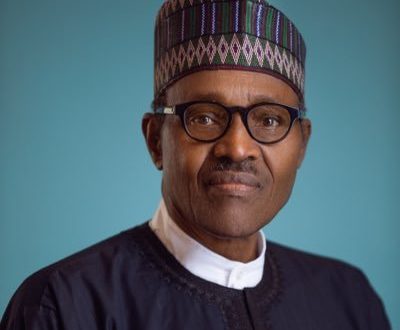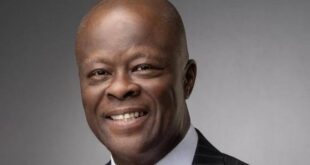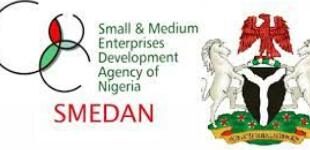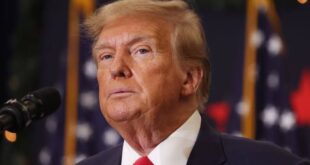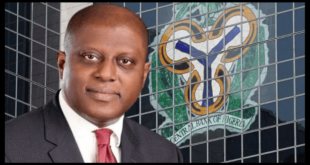Michael Uche
President Muhammadu Buhari on Tuesday in Abuja described Nigeria’s current tax system as fragmented and inefficient, urging a harmonised one within a single system to boost revenue generation.
According to a statement by Special Adviser to the President on Media and Publicity, Femi Adesina, President Buhari spoke at the 2nd National Tax Dialogue on the theme, “Tax Harmonisation for Enhanced Revenue Generation”.
He expressed his administration’s commitment to an efficient tax administration in order to improve tax revenue in the country.
President Buhari, who expressed concern at the current tax system in the country, characterised by fragmented administration, multiple and sometimes, overlapping taxes, said: ‘In most tax-efficient nations, tax administrative processes and practices are harmonised within a single system.
‘One key deliverable of this year’s tax dialogue is to promote synergy in tax administration among the different tiers of government.
‘Harmonising taxpayer identification across the country is a good start, but we must do more to promote ease of doing business (including ease of tax compliance) in Nigeria.
‘On our part, we have started by clarifying in the 2021 Finance Act that FIRS is the sole authority to administer tax for the Federal Government.
‘This clarification became necessary in order to avoid taxpayers being burdened with multiple tax compliance obligations towards different agencies of the same government.
‘Multiplicity of tax administration is as undesirable as a multiplicity of taxes; it creates uncertainty and instability; and above all, it is inefficient.’
In the face of dwindling revenues from commodities, President Buhari told participants at the Tax Dialogue that there is an urgent need to maximise domestic revenue within the extant tax policy and laws.
He proposed improved tax revenue for the country which will not necessarily impose new tax rates on Nigerians.
‘We all know that good intentions are not enough as they simply cannot pay for infrastructure, security or social amenities. We must therefore improve tax revenue without necessarily raising new taxes.
‘Revenue from commodities, including crude oil, are too volatile and unreliable. Therefore, I pledge the government’s support for any viable initiative for improving tax revenue that should emanate from this dialogue,’ he said.
On Nigeria’s Tax-to-GDP ratio, the president declared that the country also needs to do more in securing a buoyant domestic revenue base of the country that bequeaths an enduring economic foundation, political stability and social harmony to the next generation.
‘According to the Organisation of Economic Cooperation and Development (OECD), in its Revenue Statistics in Africa 2021, the average ratio of Tax-to-GDP of 30 selected African countries in 2019 was 16.6% while Nigeria recorded a mere 6.0%.
‘It is obvious that much needs to be done in the area of tax revenue mobilisation.
‘It is my expectation that the discussions at this 2022 National Tax Dialogue will be focused on what we must do to maximise legitimate revenue collection and massively improve the Tax-to-GDP ratio.’
On the importance of the Tax Dialogue, which was instituted by the Minister of Finance, Budget and National Planning, and the Executive Chairman, Federal Inland Revenue Service (FIRS), the President noted that the first edition in 2021 was very productive and integral in influencing tax policy, as well as legislative and administrative changes that were introduced last year.
He added that the most important testament to the success of the first edition is the fact that the FIRS achieved 100% of its collection target in 2021 and surpassed the N6 trillion revenue threshold for the very first time.
Congratulating FIRS on the achievement, the President assured Nigerians that the present administration would continue ‘to maintain prudent management of our collective resources.’
In her remarks, the Minister of Finance, Budget and National Planning, Zainab Ahmed, said the dialogue was designed to engage stakeholders in the Nigerian tax space in meaningful discourse so as to glean information, ideas and experience in the aid of policy formulation and improved tax environment.
According to the minister, the main tax revenue objectives of the Federal Government include developing an economy that does not lean too heavily on resource wealth.
She explained that Nigeria’s economic history provides enough facts that resource wealth alone cannot lead to sustainable development, self-sufficiency and sustainability.
The other tax revenue objectives are:
‘To institutionalise a healthy tax culture among Nigerians. The right attitude towards taxation will enable every Nigerian to become a co-guardian of the tax system and the commonwealth.
‘To create a participatory system of taxation whereby the taxpayers and other stakeholders understand and accept that they have equal stakes in the tax system.’
The Chairman FIRS, Muhammad Nami, thanked the President for his directive to government agencies to enable FIRS connect to their ICT systems; noting that this singular pronouncement softened the grounds for the Service to roll out its system for seamless acquisition of data.
‘We are confident that by the time all the agencies achieve 100% compliance with the President’s directive, Nigeria shall be the envy of other countries for tax compliance and domestic tax revenue mobilisation,’ he said.
 The Commerce Africa African Reneissance
The Commerce Africa African Reneissance
